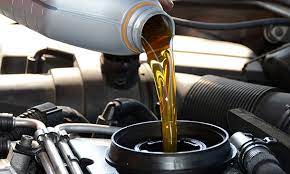Maintaining your car’s engine is crucial for its longevity and optimal performance. One of the most fundamental aspects of engine maintenance is regular oil changes. Despite being a relatively simple procedure, many car owners tend to overlook the significance of routine oil changes. In this blog post, we will delve into the reasons why car oil change services are essential and how they contribute to the overall well-being of your vehicle.
1. Lubrication and Friction Reduction
Imagine running a marathon without proper shoes – the wear and tear on your feet would be immense. Similarly, the engine components in your car require proper lubrication to prevent excessive friction and wear. Engine oil acts as a lubricant, ensuring that the moving parts work smoothly and efficiently. Over time, the oil can become contaminated with dirt and debris, leading to increased friction. Regular oil changes help maintain optimal lubrication and reduce friction, thus extending the lifespan of your engine.
2. Heat Dissipation
Your car’s engine generates a significant amount of heat as it operates. Engine oil plays a vital role in dissipating this heat and preventing overheating. As oil ages, it loses its ability to effectively dissipate heat, potentially leading to engine overheating. Fresh, clean oil has better heat-absorbing properties, allowing your engine to operate within a safe temperature range.
3. Removal of Contaminants
Modern engines have sophisticated filtration systems that help trap dirt, debris, and other contaminants present in the oil. However, over time, these filters can become clogged and less effective. Regular oil changes involve not only replacing the oil but also replacing the oil filter. This ensures that the engine continues to receive clean, contaminant-free oil, which is essential for optimal performance.
4. Improved Fuel Efficiency
Believe it or not, the type and condition of your engine oil can affect your car’s fuel efficiency. When your engine is running on clean, high-quality oil, it operates more efficiently, leading to better fuel economy. On the other hand, old and dirty oil can cause your engine to work harder, resulting in decreased fuel efficiency. Regular oil changes can help you save money at the gas pump over time.
5. Prevention of Engine Sludge
Engine sludge is a thick, gel-like substance that forms when oil breaks down and becomes contaminated. Sludge buildup can clog essential passages and reduce the efficiency of your engine. Regular oil changes prevent sludge formation by maintaining the oil’s integrity and preventing contamination, thus promoting a cleaner and healthier engine.
Conclusion
Car oil change services are not just routine maintenance tasks; they are integral to the health and longevity of your vehicle’s engine.
